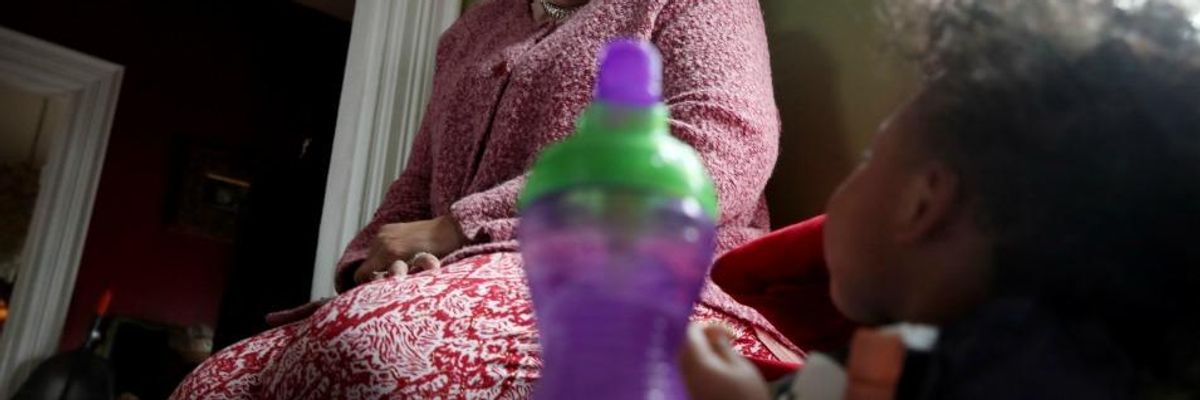With state governments directing offices, stores, and other businesses to reopen in the coming weeks, millions of American parents are expecting to return to work--and potentially be left with few options for child care.
Many child care and early education centers closed their doors in March as the coronavirus pandemic spread across the U.S., but child care providers reported in a survey released Wednesday that they have received little federal assistance to help them reopen as more and more parents go back to work.
According to Community Change Action, which surveyed 1,536 providers and educators between May 1 and May 13, fewer than 30% of respondents had received Economic Injury Disaster Loans that were available to small businesses after the pandemic began, and nearly half of them said the program had run out of funds when they applied.
"Safe and accessible child care is essential to the nation's economy and warrants full public investment. Child care providers are not getting the financial relief they need to continue to operate or to be in a position to reopen."
--Wendoly Marte, Community Change Action
The survey illustrates "how this administration is failing our country and how Congress is out of touch with the reality of working people," according to Community Change Action.
"Safe and accessible child care is essential to the nation's economy and warrants full public investment," said Wendoly Marte, director of economic justice for the group. "Child care providers are not getting the financial relief they need to continue to operate or to be in a position to reopen. Many are having to close their doors--perhaps forever--and parents will have no one to care for their children so they can go back to work."
The survey was released the same day that Reps. Rosa DeLauro (D-Conn.) and Bobby Scott (D-Va.) and Sen. Patty Murray (D-Wash.) introduced the Child Care Is Essential Act, which would create a $50 billion Child Care Stabilization Fund to offer grants to providers, provide tuition relief for families, and promote health and safety at child care facilities.
Community Change Action is calling for twice the funding included in the bill to ensure child care centers can open safely in time to help families.
"If we really want to re-open the economy and ensure that child care is safe for providers and families, we need a major federal investment--$100 billion--in child care," said Marte.
Respondents to Community Change Action's poll said in addition to struggling financially, they fear reopening their doors because they have not been able to access personal protective equipment (PPE) and cleaning supplies.
Fourteen percent of respondents who kept their centers open during the economic shutdown to provide emergency care said they did not have adequate supplies, and nearly 9 in 10 said the supplies they did get were obtained without state assistance.
Just 8% said their state had been able to provide them with PPE and other supplies.
Leaving child care centers without the health and safety resources they need leaves a huge hole in any state or federal plan to reopen businesses, according to advocates.
"Without child care, there's no recovery," Lynette Fraga, executive director of the non-profit Child Care Aware of America, toldThe Hill Thursday.
The requirements of child care providers in the midst of a pandemic--including regularly taking children's and parents' temperatures, implementing social distancing, and serving smaller groups of children--"turns upside down the business model for the child care providers," Fraga said.
"What's really needed is support ensuring that when PPE is needed, providers have it, when sanitizing equipment and supplies are needed, they have it," she added.
One early childhood educator based in Brooklyn told Community Change Action that her industry operates in a gray area between small businesses and the education sector--without receiving the same support as public schools.
"Are we not part of the New York small business industry?" the respondent said. "We have been put under the umbrella of DOE, with regards to closing, but we do not have DOE level support. We do not operate out of city owned buildings, we have rents to pay. Our teachers and staff do not get a salary from budgeted city funds, we are tuition based operations and currently have zero revenue to pay our staff or anything else."
"Why must we be the afterthought?" the educator added. "We need guidance. I need guidance, so as a business owner, I can plan and hopefully be around when the dust settles."
